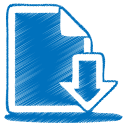- Publications
- Conference paper
-
 Towards a microRLMS approach for shared development of remote laboratories
Towards a microRLMS approach for shared development of remote laboratories
Towards a microRLMS approach for shared development of remote laboratories
Authors

[u' @inproceedings{orduna_towards_2014, address = {Porto, Portugal}, title = {Towards a {microRLMS} approach for shared development of remote laboratories}, doi = {10.1109/REV.2014.6784192}, abstract = {Educational remote laboratories are a software and hardware tool that allows students to remotely access real equipment located in universities as if they were in a handson-lab session. They have been used for almost two decades. And most remote labs use at least a subset of the following features: authentication (verifying who is the user), authorization (granting permissions to laboatories), scheduling (usually a queue or a calendar), user tracking (registering students activities), federation or administrative tools. Systems that provided these features in a uni\ufb01ed approach arose, called Remote Laboratory Management Systems (RLMSs). RLMS provide toolkits for making the development of remote labs easier: a remote lab developer uses one of these toolkits and all the features are automatically inherited. Furthermore, new versions of the same RLMS will provide new features. However, sometimes these RLMS do not allow remote lab developers to consume only certain features, implementing the rest themselves. This is a problem when integrating external laboratories, and increments the learning curve. The focus of this contribution is to describe a lighter approach based on multiple coupled small optional services called microRLMS.}, booktitle = {2014 10th {International} {Conference} on {Remote} {Engineering} and {Virtual} {Instrumentation} ({REV})}, author = {Ordu\xf1a, Pablo and Rodriguez-Gil, Luis and Angulo, Ignacio and Dziabenko, Olga and Hernandez-Jayo, Unai and L\xf3pez-De-Ipi\xf1a, Diego and Garc\xeda-Zub\xeda, Javier}, month = feb, year = {2014}, note = {00000}, keywords = {Federation, RLMS, Remote Laboratories, Software Architecture, WebLab-Deusto, iLab Shared Architecture}, pages = {375--381} }']
Abstract
